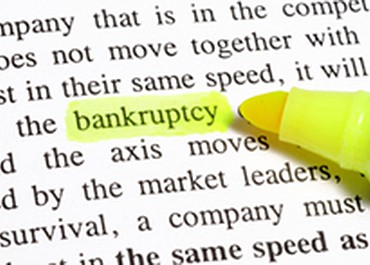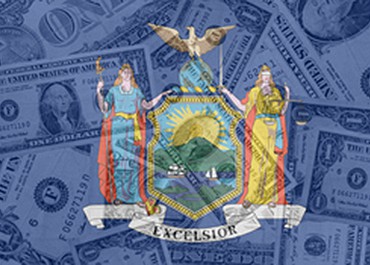
The other day, I had a telephone call with a client; we’ll call him “Slim.” Slim was worried about the impact a venture’s winding up might have on his public image. His concern was that a creditor might blab to the press, which would then show him in a negative light. Slim is an entrepreneur and, as an entrepreneur, Slim assumes the risk of failing ventures. Most fail. I assume Slim’s reputation is built, in part, on his success. I also assume that his success rate is favorable. Failure’s Positives… Read More

Involuntary bankruptcy petitions may be the nuclear weapon in the commercial debtor-creditor collections arsenal. Like its military counterpart, it devastates. An alleged debtor may be crippled economically, where it was viable before the involuntary petition was filed. To limit abuse of involuntary petitions, the Bankruptcy Code imposes onerous penalties on petitioning creditors with failing petitions. Those penalties include: (A) costs; or (B) a reasonable attorney’s fee; or against any petitioner that filed the petition in bad faith,1 for – (a) any damages approximately caused by such filing; or (b) punitive damages.2… Read More

In the 1960’s, New York City’s WMCA radio called itself the “Good Guys.” Today, referring to a “good guy” frequently means a “good guy clause” in a guarantee for a commercial real estate lease. A “good guy clause” generally provides that as long as the tenant: a.) pays its rent through its vacating the premises; b) provides the landlord with advance notice of its leaving, and c.) leaves the premises in good condition, then the guarantor limits their personal liability for the balance of the lease’s rent. This provides landlords… Read More

We represent all the players in the debtor-creditor spectrum. So, we’ve developed some perspective. Sometimes the view is disheartening. A concern arises in defending the enforcement of money judgments. When representing judgment debtors, judges have said to us “this is a federal judgment and it must be paid,” or “it may not be today, it may not be tomorrow, but this judgment will be paid,” or one judge thundered “a judgment should be paid.”[1] These sentiments are echoed in reported decisions.[2] We also enforce judgments. So, we appreciate what they are.… Read More

Marx was right! “Love flies out the door when money comes innuendo.” Unfortunately for some, money problems keep some couples together who’d rather be divorced. The issues become who pays the debt versus who keeps the couch, cat and castle. Bankruptcy can help divorcing couples get two fresh starts; marital and financial. Thanks to Congress, the Bankruptcy Code Amendments of 2005 made this possible. The “sea change” was: (a) changing domestic support obligations to first priority in payments to unsecured creditors; and (b) making or presuming, as non-dischargeable,3 all claims and… Read More

When it comes to business torts, folks like calling their wrongdoers “racketeers.” It’s not just because it sounds evil. Claims under the federal Racketeering and Corrupt Organizations Act, (“RICO”) 18 U.S.C. §1961 et seq, carry treble damages. 1 RICO: Excaliber It Ain’t However, as lethal as RICO sounds, implementing it gives it dubious value. Courts scrutinize RICO claims. One court summarized: It has been suggested that “the civil provisions of [RICO] are the most misused statutes in the federal corpus of law . . . (“I surmise that every member of… Read More

Technical bankruptcy procedure can be fun. So, here goes. Dueling Districts Imagine two bankruptcy cases, involving the same debtor or their affiliate in two different districts (e.g., Delaware and Wyoming). It’s likely that one set of interested parties (e.g., debtors, creditors, regulators) will find one of the venues inconvenient. Often, the second case’s filing responds to the first case’s inconvenient location. Federal Rule of Bankruptcy Procedure 1014(b) (“Rule 1014(b)”) provides a means for moving the inconvenient case to the preferred location. A motion is filed in the pending first case’s… Read More

Until recently, New York State residents with rent stabilized apartments risked losing their homes in bankruptcy. This unhappy state ended in the recent decision, In the Matter of Mary Veronica Santiago-Monteverde. etc., (Santiago-Monteverde.”)1 New York State’s highest court ruled that rent stabilized leases are “public assistance benefits” which are unavailable to be converted to cash to pay creditors. The Bankruptcy Context Filing a bankruptcy case creates an “estate” comprised of all the debtor’s property. In chapter 7 cases, a trustee is appointed to administer that estate. Trustees administer cases by selling marketable “non-exempt”… Read More

Many things precipitate chapter 11 reorganization cases. Frequently, it’s a response to a judgment creditor’s efforts to enforce its money judgement. Those efforts interfere with customer relations, cash flow and the judgment debtor’s economic survival. Smart judgment creditors realize that crushing their judgment debtor won’t get them paid. Judgement debtors and creditors may not agree on what is destructive. That’s where a chapter 11 reorganization case comes in. It stops the enforcement efforts while the judgment debtor attempts to reorganize. While valuable, reorganization cases are not inexpensive. Cash-strapped judgment debtors… Read More

On September 16, 2014, New York courts announced rules banning collecting consumer debts which were: a.) not incurred; b.) previously paid; or c.) subject to statute of limitations defenses. The new rules require: a.) creditors submitting affidavits for default judgments with detailed proof; b.) that default applications contain the debtor’s original credit agreement, a detailed accounting of each stop in the debt’s chain of ownership and documentation that identifies the target of the default judgment as the correct debtor; c.) an affidavit from the creditor’s attorney that the statute of… Read More

